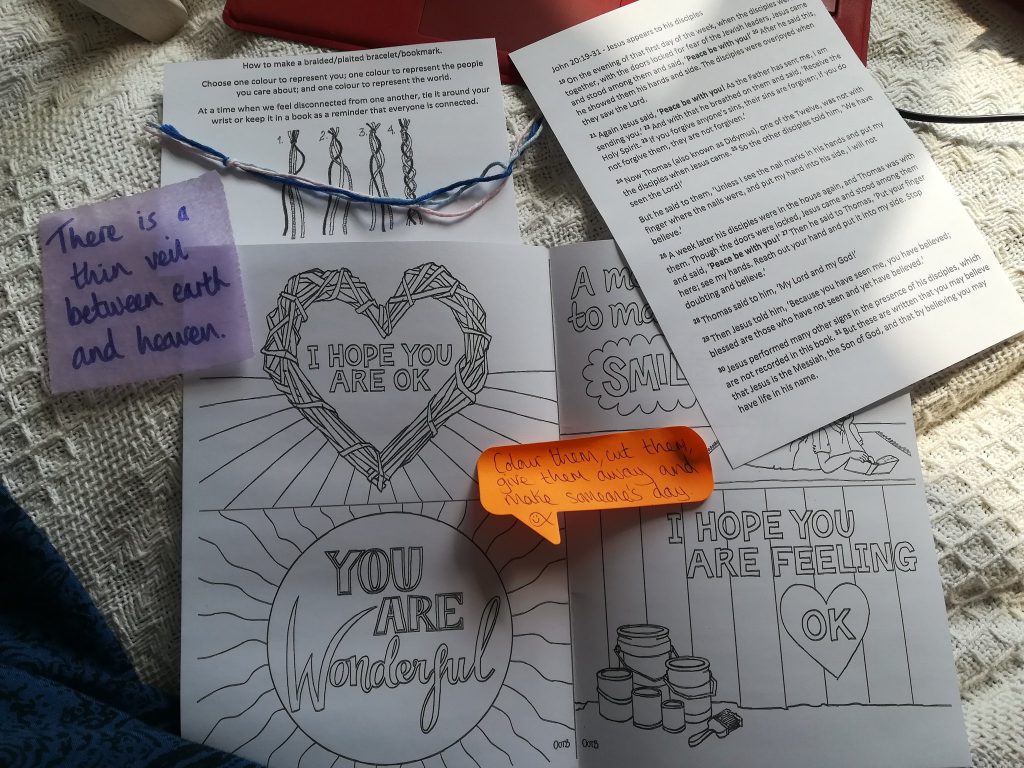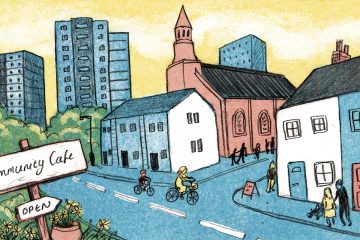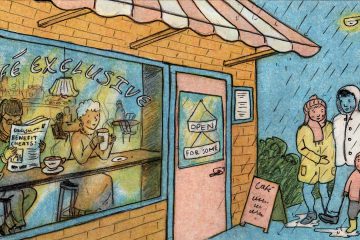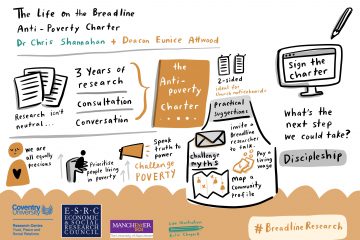Our next guest blog post during Covid-19 comes from Suzanne Vernon Yorke, a Church of England priest in London. She shares with us her experience of being a priest in a pandemic:
Who, where, what am I?
I’m a vicar (priest) in a small community church (30ish people) on a housing estate in West London. Our church building is physically attached to a YMCA hostel, offering supported accommodation to homeless young people. My Sunday mornings are usually spent leading a worship service in church, followed by chatting with people over a cuppa and seeing how people are. Doing life together has always been the best bit about church for me, and that’s looked a little different during the global pandemic!
What happened with church?
First, we were told by the Church of England Archbishops to stop meeting together as a congregation. So, I quickly set up widely spaced creative prayer points in church, with hand sanitiser at the door, for people to access throughout the week (it was Lent, with Easter yet to arrive). Within days, we were told by the Archbishops to close our church buildings, even for private prayer (doors locked to the community). Then came the national lockdown from government. The situation unfolded quite quickly, having to rethink and adapt to changing circumstances rapidly.
Online solutions
Lots of churches have been livestreaming services or recording them and putting them online. This is brilliant for those who can access the internet; however, we have a number of people who can’t. With that in mind, I found the idea of excluding them too uncomfortable, so offering worship in that way was never an option for us. Being a priest in a way that suits your context, your people and you as a person, is really important.
On yer bike!
Most of our church members live locally, so with the exception of one contacted by post and four households by car, I have spent every Sunday morning cycling around the area with Sunday packages. These have contained different things each week, including: wordsearch puzzles (to keep the brain alive); colouring pages (for calm relaxation); strings (to braid together as a reminder of our connectedness); as well as the weekly bible readings.
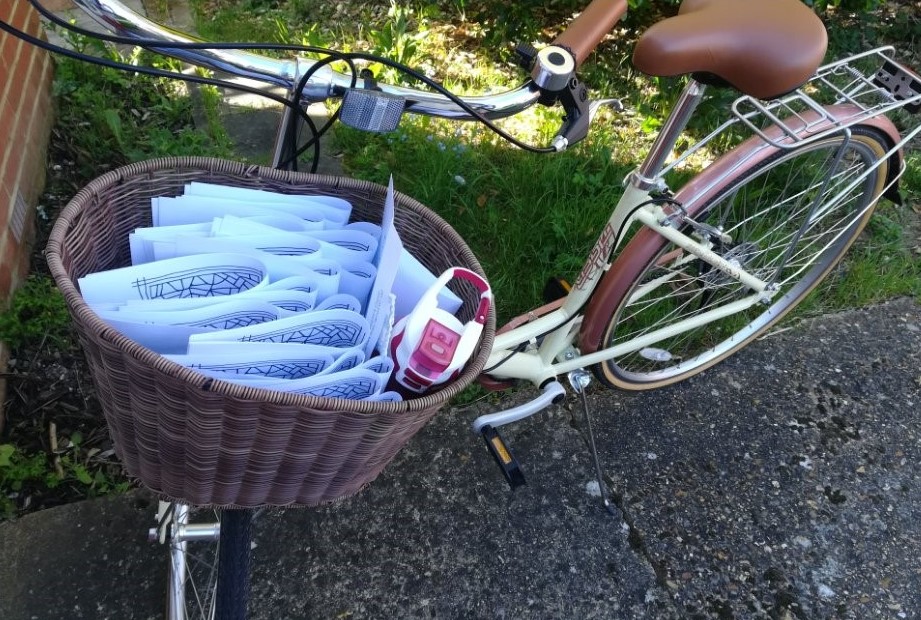
Not wanting them to miss out, I’ve had particular fun attempting to create braille messages for a blind couple. It’s kept them entertained laughing at me anyway! As an illustration of the broader situation, it’s been a case of learning to overcome problems along the way, on the journey to a workable solution, and not giving up. Over the weeks I’ve tried pin hole braille dots in reverse (too easily flattened when read), candle wax dots (some fell off when touched), glue dots (dried flat), nail varnish (mixed result), 3D glue dots (too far apart), 3D glue dots closer together (spiky on the fingertips). Success finally came when I sewed dots saying, “Peace be with you”. That had them and me in socially distanced tears on their front garden path!

What does your church think?
I was trying to be a blessing to them in delivering packages and praying for each household as I posted packages through their doors. It’s been the highlight of every week for me! I’m the one who’s been blessed by having the opportunity to deliver the packages to their homes, occasionally getting to see their beautiful faces on the doorstep or at windows. There’s been an amazing sense of mutuality and connectedness in it all. I’ve found “Good Morning Suzanne” messages taped to letterboxes when I arrive, along with gifts of chocolate, fruit and baking. Honestly, I know some of the world’s best people!
Practically speaking
One of the most difficult times was preparing a funeral for someone who had died with the virus. Usually, I would meet with the family in their home, talk about their loved one, and prepare the service together. Doing all that by phone felt impersonal and detached. I felt compassion restricted.
Still wanting to be of some practical use in supporting people, I signed up as an NHS Volunteer Responder. Since I was already shopping and running errands most days for a handful of older and vulnerable church members, it was a good way to support the wider community that I couldn’t access any other way.
We have still been church throughout. I have still been a priest throughout. But those things have definitely looked a little bit different in recent times.
I often say that we’re not just church gathered (on Sunday) but church scattered (all the rest of the time). We’ve been scattered for a long time now, which will make being gathered even more special when it arrives.
